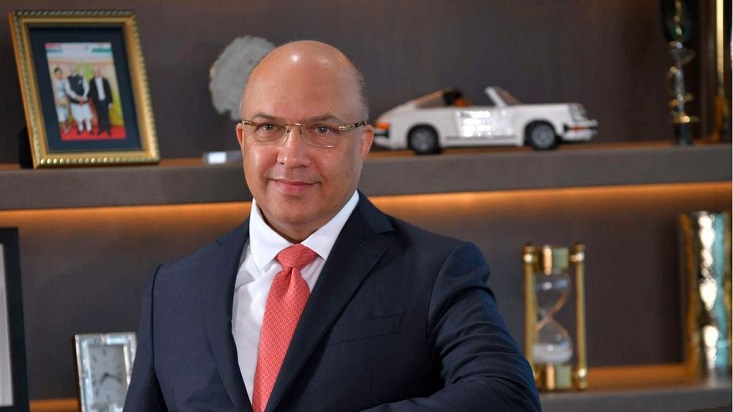Yogesh Pattni is the Managing Director of Victoria Commercial Bank. FILE PHOTO | POOL
As far back as he can remember, Dr Yogesh Pattni was always interested in banking. His family landed in Kenya from India in the 1930s and were jewellers by tradition – goldsmiths.
They got down to business and by the turn of the century had diversified their portfolio into manufacturing, travel, hotels and the retail sectors.
Young Yogesh’s fascination with banks however remained.“Who doesn’t like money?” he chuckles as to whence his interests came.
After graduating with a bachelor’s degree in Business Administration, and subsequently, a Masters, he worked briefly in the United States for Bank of America but had his sights set back home.
Back in Kenya, he worked briefly in the banking sector before an opportunity arose. Around 1985, a group of churches in Kisumu came together. They wished to set up a financial institution to assist small businesses in their community.
Victoria Bank roots
The name Victoria, Mr Pattni reveals, comes from Lake Victoria where the business’s roots lay.
The church group had been granted a licence for the institution and was looking for the initial share capital which amounted to Sh7.5 million. They could only come up with Sh1.5 million.
Mr Pattni’s father, Kanji D. Pattni was a good friend of the initiators. He asked his son if he’d be interested in the venture.
Mr Pattni didn’t need much prodding and jumped at the idea. His father offered him Sh1.5 million as his seed. He had to find the rest.
Operations at Victoria Finance started on October 15, 1987, in downtown Nairobi in a building aptly named Victor House. They started with a staff of three and the board of directors brought in a managing director.
Mr Pattni at the time was in charge of credit and credit administration but in those back-breaking initial days would play multiple roles; doing deposits, and accounting. At times, he’d even serve as a cashier.
As per the initial vision of Victoria Finance, they moved their headquarters to Kisumu in 1991. For a year, everything seemed to be going well until it emerged that there were significant problems bubbling under the surface.
First business failure
The managing director had for a while been lending out significant amounts of cash which weren’t and couldn’t be recouped.
“A lot of repayments were not made and we decided to let him go and also close the Kisumu office,” Mr Pattni recalls of his first failure in business.
In 1993, he took over the reins and because of the Kisumu debacle had to rethink their business model, on top of spending years “cleaning up our books.”
Before, Victoria Finance worked with small traders who’d bring in money but then take it out soon after – an in-and-out situation.
They decided to diversify and look at clients in the manufacturing sector as well as SMEs.
The lean period
In effecting the changes, Mr Pattni wanted value addition as one of the pillars of the new operation.
In 1996, Victoria Finance became Victoria Commercial Bank (VCB) and moved operations to Upper Hill, Nairobi, which is still their nerve centre to this day.
“Having learned from Kisumu, we knew where things could go wrong. We now pitched, ‘We are not here to take your money but to add value,’” Mr Pattni says of the change in tact at VCB.
As a bank, it could also offer letters of credit, guarantees and even trade in foreign exchange which was previously restrictive as a financial institution.
From 1996 and a significant period after, VCB had to tighten their belts. “We had to clean up the balance sheet and staff had to go without pay rises,” Mr Pattni says of the lean period. He and others had to take pay cuts.
The new model
Their new model – value addition – and the hiring of professionals from the sector brought in more business as word spread.
After the massive cleanup effort, Mr Pattni says the aftermath was a 13-year 100 percent loan performance period!
“Many people did not believe it,” he says but sites Development Financial Institution which carried out a year-and-a-half of audits and certified that this was indeed true.
The high score is also partly explained by the fact that VCB doesn’t accept walk-in customers. They do the courting after conducting strenuous due diligence.
According to Mr Pattni, they operate on a small client base with a clean operation that enables them to meet their clients’ needs and requirements fast.
The bank has 110 employees. In the future, Mr Pattni would like to steer a doubling of their balance sheet and look into deeper and greater partnerships with development partners.
What’s the greatest business lesson he’s learned these years later?
“Integrate honesty into your business. Secondly, do not run. Running will trip you up and make you fall.”
He further advises treating those that work for you with dignity. “If you do this, not only will your staff but even God will bless you!”
-Business Daily





